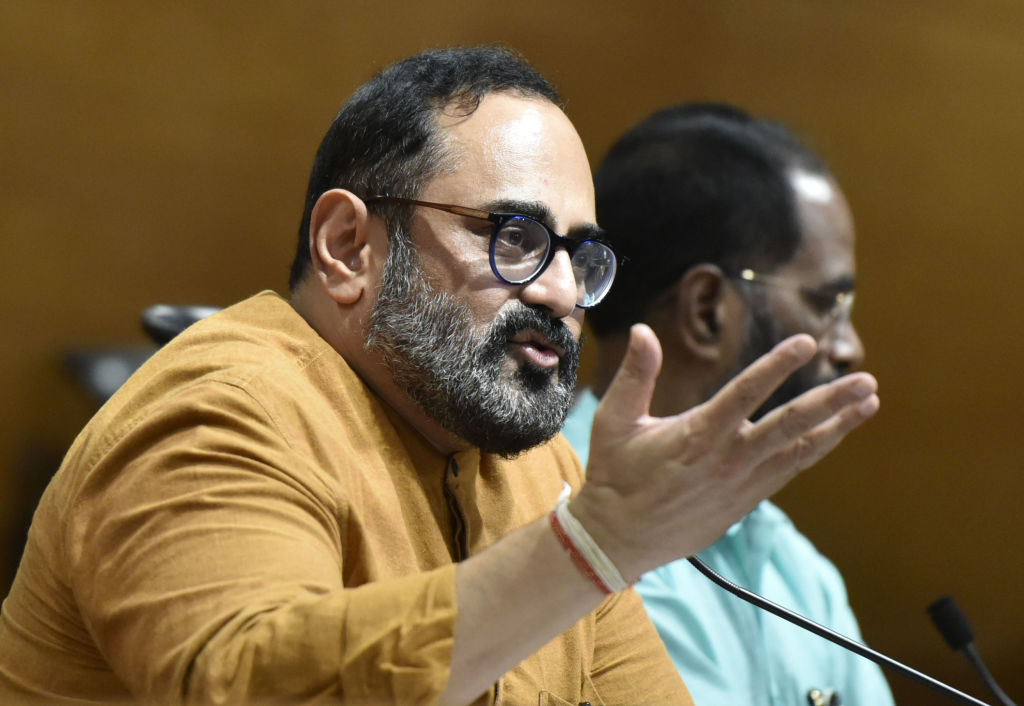
There are about 830 million Indians connected to the internet today. There will be almost 1.3 billion Indians connected to the internet by 2025, making India one of the most connected nations in the world and the largest single presence on the internet.
The internet in India is not just about using Instagram or social media or Facebook. Rather, more and more Indians are connected for a range of products and services, including getting public services in a manner that is unprecedented and draws the government and the citizen closer together. In a lot of ways, India has become the pre-eminent nation in deploying technology and the internet to transform governance and deliver better public services to its people.
So we have that one basic understanding that the internet and indeed the related digital economy that is surrounding the internet are increasingly important pieces, not just from a point of view of governance and delivery of public services, but also from a point of view of creating livelihoods, investment, jobs, entrepreneurship and innovation. It takes on a greater degree of significance for us that the internet therefore remains, and the digital economy around it remains, something that is consistent, predictable, safe and trusted.
As we look at policymaking around the internet and around tech in general, the internet must remain open. It should be certainly safe and trusted. And the platforms that have over the last decade started to dominate the internet in these big islands of commercial dominance must be accountable to those Indian users. There is a certain legal accountability that is inherent in the relationship between the platforms and Indian consumers. Broadly, this is the framework that we look at.
I think all of us can agree that the internet, when it was built in the 1980s, was envisaged as being really this force for good. People all around the world could collaborate and create a better world through that collaboration. I was a young graduate engineer in the US filled with the same utopian views. And that has held true for several decades. But we have seen, unfortunately, over the last decade or so that the internet, while remaining a force for good, has also become a place where user harm, criminality and other kinds of deliberate illegalities or actions that border on illegalities also are significantly present.
For democracies like India, as we try and harness technology for the good of our citizens and for growing our economy, it is important to also address this issue of how we make sure that the internet and indeed the tech space remain a force for good. If there is user harm or illegality or criminality that tries to creep in, or indeed state actors that use things like misinformation and disinformation to undermine open societies, how do we deal with that?
It is quite clear that misinformation and disinformation rank up there with illegality and criminality because of their very viral nature. In some experiments that we have conducted on the live internet, our government and our agencies have determined that the velocity of misinformation and disinformation can be eight to 10 to even sometimes 20 times faster greater than normal information—and the reach is in the same order of significance.
As open societies and democracies, we can make the reasonable conclusion that, given the bodiless nature of the internet, there must be an approach towards dealing with this challenge that spans boundaries, spans capitals and should be a global, cooperative framework.
In the coming decade, technology will continue to disrupt, the internet will continue to be redrawn, and many countries, including some to the north of us, want to believe that they will in some sense control the redrawing of the tech space that is currently underway.
These disruptions are the new normal, with new technologies like artificial intelligence and Web 3.0 accelerating the redrawing of the tech space. This redrawing should be the catalyst for building a partnership and a collaborative framework of like-minded countries, rather than having silos driven by independent individual countries. I have consistently argued, and the government of India and all of us here in India consistently argue, that the future of tech and future of the internet is something that we must not allow to get ahead of the so-called challenges that we want to address.
On disinformation, on misinformation, on user harm and on online criminality, there has to be a broader cooperation between like-minded nations so that we are able to jointly address these issues in a more responsible and a more responsive way in the coming months and years.

